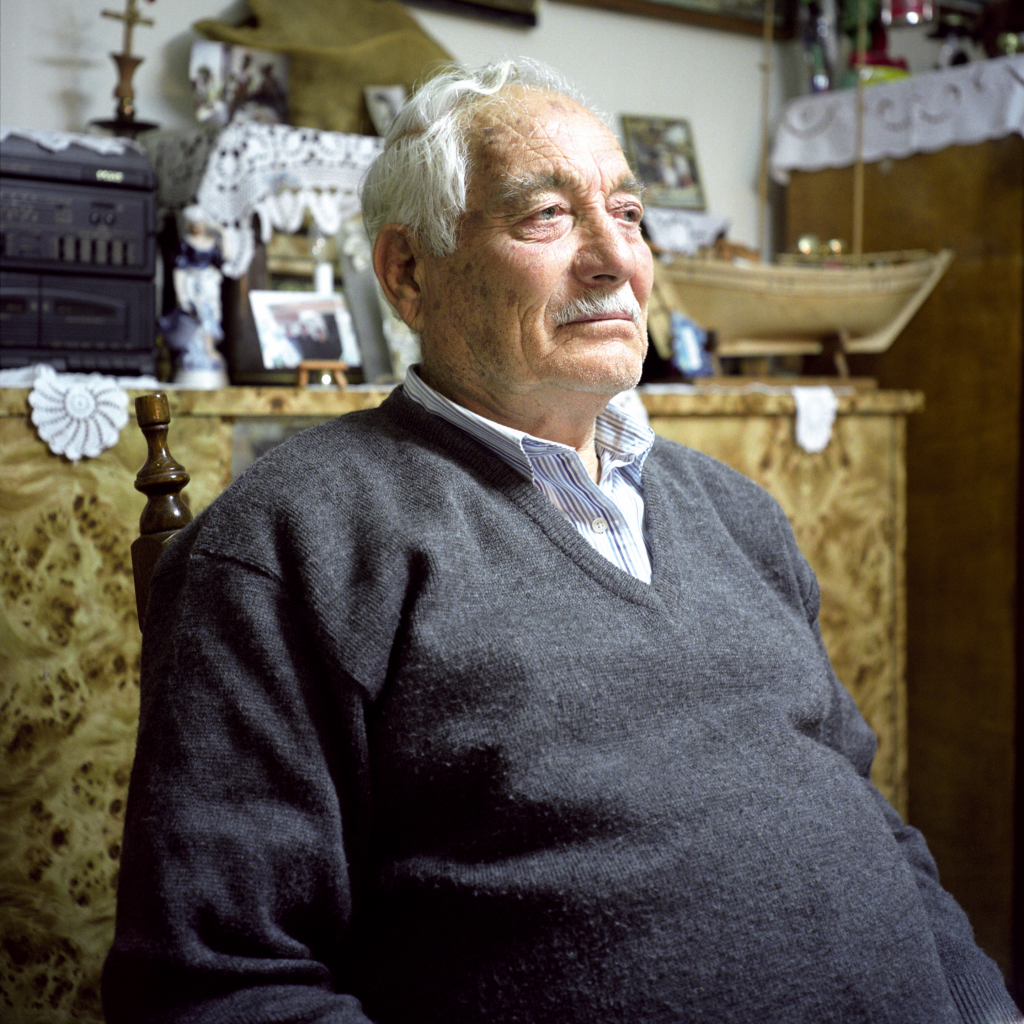Evangelia KraniotiArchipel

The sea is what I have always considered as my vision on Greece, generating a series of concepts strongly linked to the theme of desire. I lived in Greece until some time ago and I still return each year. However, since leaving I feel that distance brings a magic deformation to the memory I keep of things. Words, voices and faces, moments of the day, voyages, celebrations, landscapes. There is often an important gap between all this and reality itself, like a kind of error committed somewhere. However, the echos that follow the events themselves, keep inside an untouched pure desire, a state of innocence where things are no more than what we want them to be.
I have listened to stories of sailors and have created my own personal fiction, a kind of secret mythology where I would experience the sweet solitude of errancy. Only later did I understand that the work, Archipel, is a metaphor, a pretext to come closer not only to the reality of the sea but to my own personal story. Because the sea itself is this kind of mental elsewhere where I spend most of my time, a passage between the homeland and the world, a no-man’s land or even a no-land, platform of restlessness. The sea incarnates perfectly the relativity of distance, of emptiness filled with emotions, movements and thoughts. All the people I met and whose stories I listened to helped me to understand this state of being, shared in between two or more things, places and desires.
Before diving gear was invented, the divers of Kalymnos used to plunge naked into the sea, with a large piece of marble tied around their waist that would help them quickly reach the bottom. Here’s a story that might seem exaggerated but true: there once was a diver who tried to reach the bottom of the sea, weighed down by a piece of marble, who instead entered straight into the mouth of a gigantic fish, once seen from the surface of the water had appeared to be a huge rock. However, the diver entered with such force that the fish spat him out. As soon as his fellow divers on the boat realised what had happened, they pulled him up with a rope. The unlucky diver had to be immediately transferred to a hospital in Athens, his body covered in lacerations. After healing from his misadventure the diver was very proud of his scars. People said that even the king of Greece, Pavlos, paid him a visit, proposing to honour him with a kind of state aid for his courage, so he might be able to open a small shop and not risk his life again. The diver is said to have answered with a smile, saying he would prefer to buy a big boat and continue his day on the sea.
My wife and son insist that I should sell my kaïki. They say that now I am old and I should put my money to better use and have some peaceful moments in our small house. But I have absolutely no desire to sell it. This afternoon I was with my grandson and I explained to him “Sometimes I have a headache, but when I get on my boat the pain disappears!” The day that I am separated from my boat will be the worst day of my life. I have spent forty-five years on it. My kaïki was my house during six months of the year. I am linked to this boat; it’s a part of me. However, at my age, things are not really as they used to be. There are moments when I am weak, and then there’s no one on the boat to help me. Before, there used to be my children, but today I don’t want to have an unknown person with me. It would feel strange, awkward. Maybe I should make the decision I’m constantly putting and sell it…
As a sailor’s wife, I have followed my husband on his trips many times. But a sailor’s life is difficult, monotonous… Besides that, you cannot ignore the presence of others on the boat. Without knowing their story, who they are and where they come from, you are obliged to respect them. And then, sailors tend to reinvent their life on the land. They make up stories about their families; the truth is usually a disappointment. You don’t become a sailor or an immigrant unless you have to, because you cannot stay in your place or because you face difficulties. There are few people who truly have a wandering desire in their blood, who are restless. If you could peacefully stay in your village, would you leave for America?
